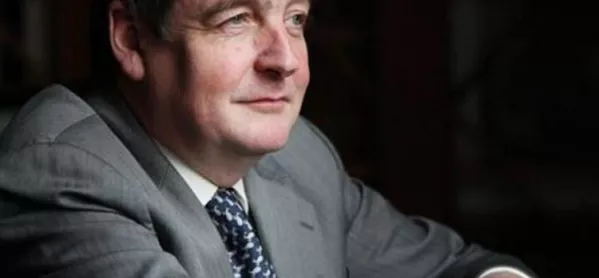Under a clumsily-contrived headline in last week’s Sunday Times, State schools mount charge of poetry brigade, it was reported: “Some of England’s leading state schools are creating lists of up to 100 great poems and books that all pupils must study, 100 pieces of classical music they should listen to and key dates and narratives in British history to memorise”.
The 14 schools in the Inspiration Trust, based in East Anglia, have drawn up these must-know lists. It’s a reasonable strategy: nearly 40 years ago, I was a music teacher and my department religiously covered some 50-60 seminal classical works with all our Year 7-9 pupils. Our argument was: if we don’t cover this element of our Western European cultural history, who will?
Rhyme and reason
There’s nothing wrong with getting kids to learn poems by heart: Jeremy Corbyn’s criticism reference in response, of “rote learning” was ill-judged: there’s a difference.
Moreover, this scheme chimes with current Ofsted thinking. According to Amanda Spielman: “What matters for most young people isn’t grade stickers from exams but the substance of the education they receive. Education is the great force for human advancement and the advancement of civilisation”.
Amen to that: I hope she reminds the government of it when policymakers insist on cranking up academic benchmarks.
There will be inevitable disagreements about inclusions and omissions in such lists of “must-knows”. I’m not concerned about them, and agree with Jo Saxton, CEO of the Turner Schools academy trust: “It almost does not matter as long as we are all exposing children to work that has stood the test of time”.
Still, some aspects cause me unease. I’m uncomfortable with some of the reasons cited for devising this cultural canon.
Inspiration Trust boss Dame Rachel De Souza claims a passion to deliver “an education as good as the education kids get at Eton and Harrow...our children need to know what people in the club know”.
Katharine Birbalsingh, headmistress of Michaela Community School in North London, adds, “If you do not have cultural capital you can’t...hold conversations with the kind of people who hold top jobs or go to top universities”.
Dancing to a new tune
I find those poor justifications for developing children’s cultural capital. I doubt that many of the über-confident young products of top private schools are conversant with 100 poems, books or compositions, and implying that such knowledge defines “the club” (whatever that is) is misleading. If it’s dilettantes and name-droppers you want to create, buy those hilarious Bluffer’s Guides, still in print. Social capital is rather deeper.
I’m unconvinced by Birbalsingh’s justification for including William Ernest Henley’s Invictus, a ponderous piece of Victoriana to my mind, just because it inspired Nelson Mandela. But perhaps I’m completely wrong. Perhaps it’s worthy of inclusion precisely because of its connection to a man who changed the world.
That’s the point: defining cultural capital is fraught with pitfalls. Teaching music, I didn’t meet children part-way (an approach commonly suggested) by playing them familiar music: the classics I introduced them to were new and strange to most.
Should I have identified works that have since become modern classics? Back then, Morrissey, U2, Abba, Queen and others were building global and lasting reputations, but I didn’t cover them in class: did that matter?
In multi-cultural 21st century Britain, we tread a tightrope between two risks: those of cultural imperialism (“This is the Western European canon you must absorb”) and of patronisingly paying superficial lip-service to every other cultural tradition that we encounter in Britain - now innumerable.
Observing how many cultures and backgrounds my pupils inhabit simultaneously, I’m jealous: a middle-class white Anglo-Saxon, I’m a pretty boring guy by comparison.
Heart over dread
We need to be careful here, and ensure we’re clear about our motivation. Nonetheless I rejoice in this opportunity, at long last, to debate sincerely and self-critically what we mean by the cultural capital schools seek to pass on to pupils.
The Sunday Times piece left the last word to John Sutherland, emeritus professor of English literature at UCL: “I’m in favour [of children learning poetry] - with the proviso that they call it “learning by heart”, not “rote”: the heart matters where poetry is concerned.”
Where all of cultural capital is concerned, surely the heart matters above all.
Dr Bernard Trafford is headteacher of the Royal Grammar School, Newcastle upon Tyne, and a former chair of the Headmasters’ and Headmistresses’ Conference. The views expressed here are personal. He tweets at @bernardtrafford
To read more columns, view his back catalogue
Want to keep up with the latest education news and opinion? Follow Tes on Twitter and Instagram, and like Tes on Facebook.




